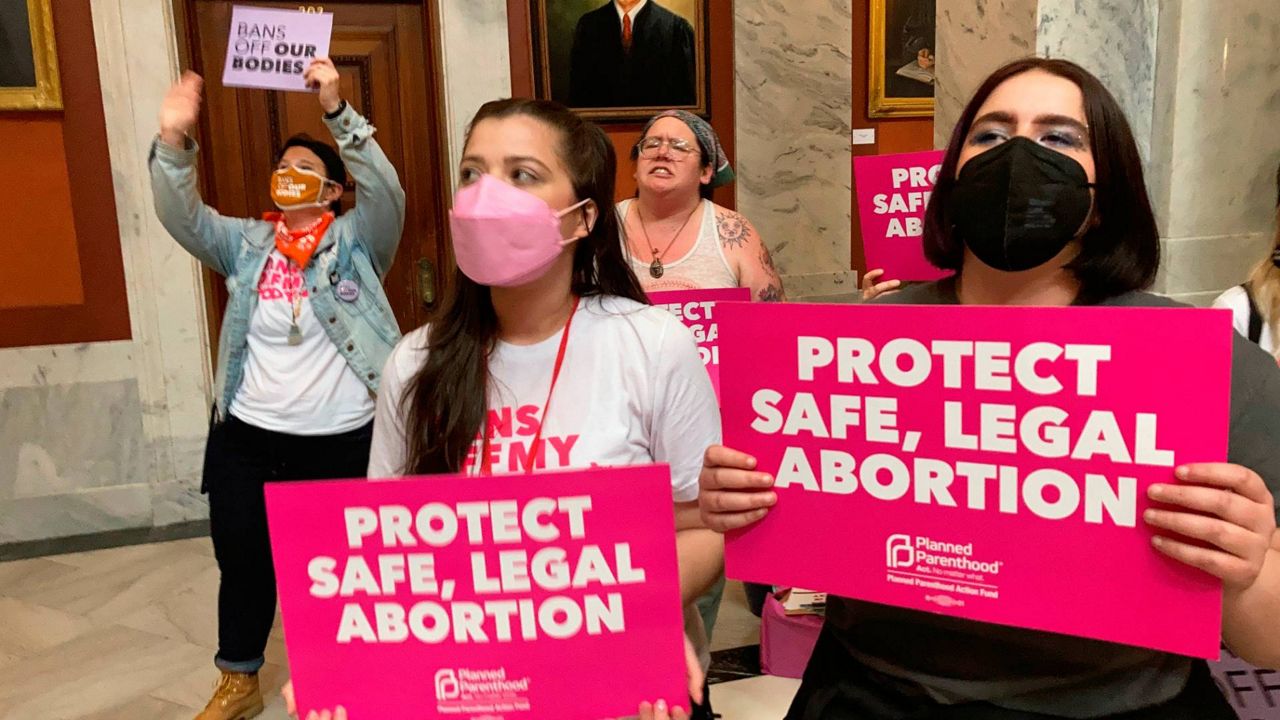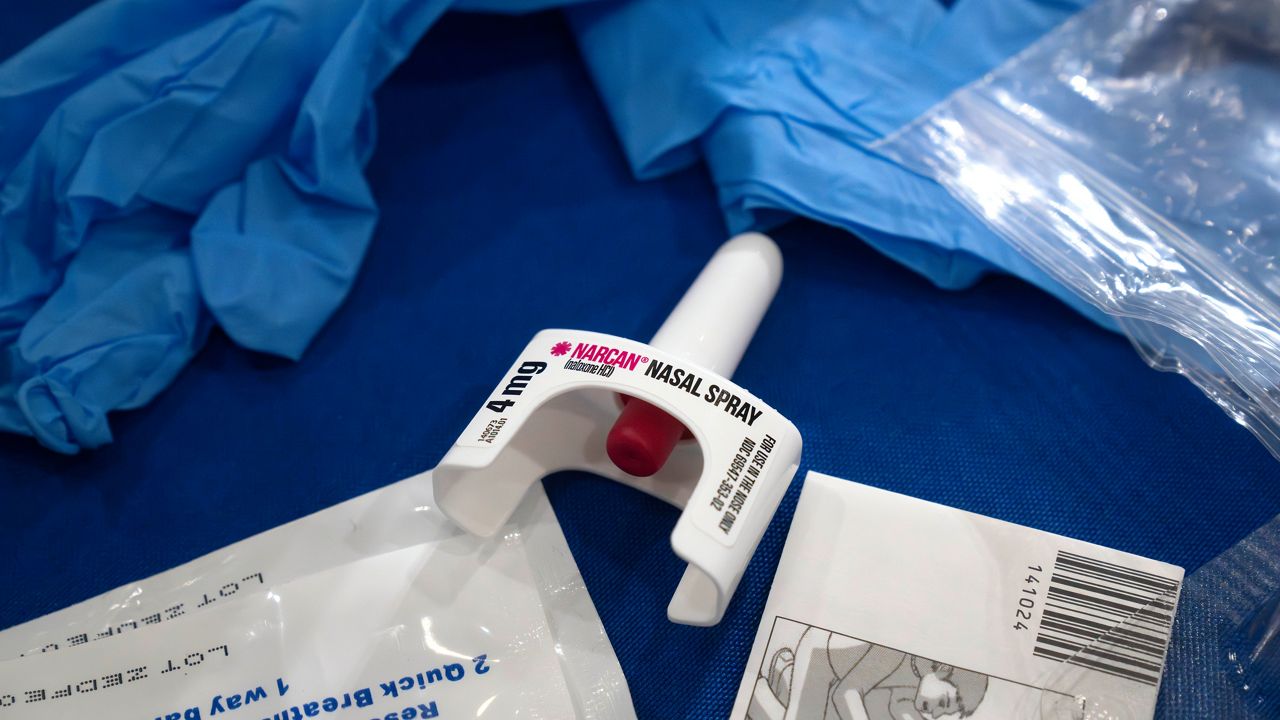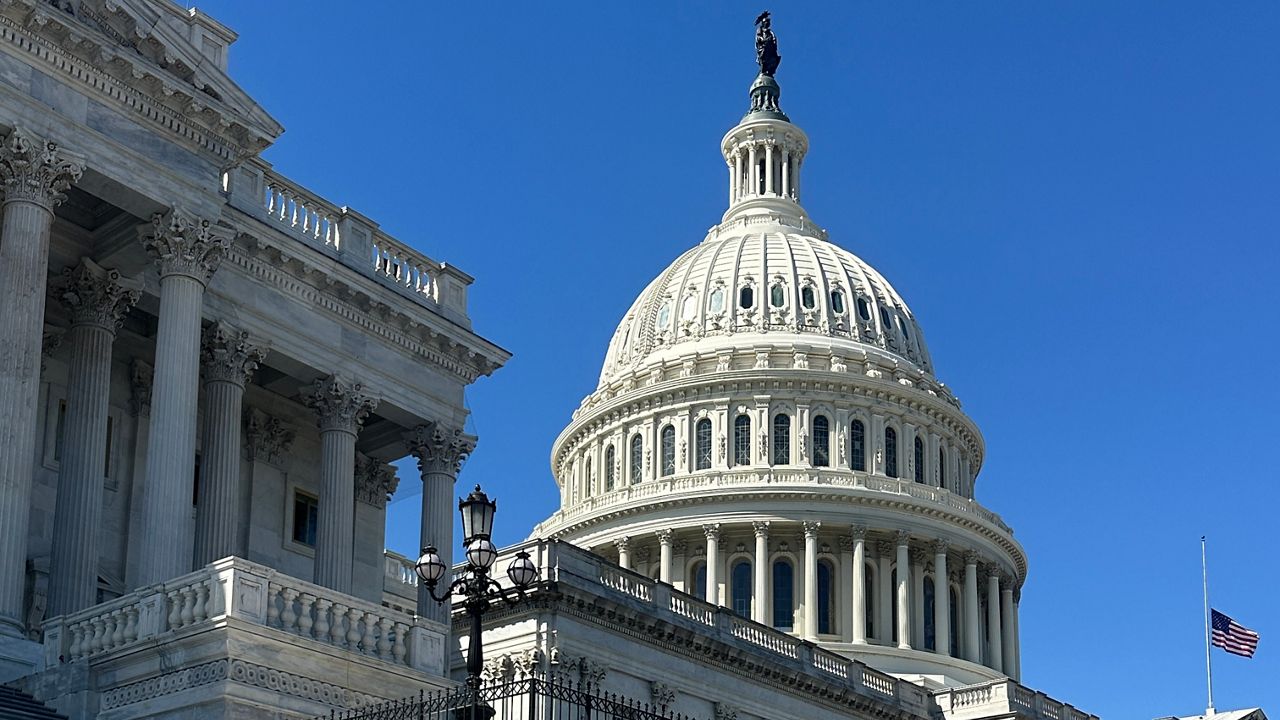LEXINGTON, Ky. — A Kentucky state court has granted a request from the American Civil Liberties Union (ACLU), ACLU of Kentucky and Planned Parenthood Great Northwest, Hawaii, Alaska, Indiana, Kentucky for a restraining order blocking two laws passed in 2019 that stopped abortion services in the state last Friday — a complete abortion ban Kentucky Attorney General Daniel Cameron threatened to enforce following the U.S. Supreme Court’s overturning of Roe v. Wade and a six-week ban blocked by a federal court.
What You Need To Know
- Restraining order granted by Jefferson County judge
- Abortion ban initially took effect Friday, June 24
- Prosecutors' offices in Kentucky's largest counties are short-staffed, cash-strapped
- Pregnant mothers excluded from prosecution
The lawsuit argues that the bans violate the rights to privacy, bodily autonomy and self-determination outlined in sections one and two of the Kentucky Constitution. A hearing on the organizations’ request for a temporary injunction to block the laws during litigation has been scheduled for July 6.
Legal battles in the Commonwealth over abortion rights are likely to continue, but with the likelihood abortion bans will ultimately be implemented, prosecutors in Kentucky’s largest counties have weighed in on how they will handle cases in which a doctor is accused of illegally performing an abortion.
Thomas B. Wine, Jefferson County Commonwealth’s Attorney, said the restraining order changes the approach taken by his office since the Kentucky statute is not in effect, which means the criminal provisions of the statute are not in effect.
Kentucky’s Human Life Protection Act took effect immediately upon the U.S. Supreme Court’s decision in Dobbs v. Jackson Women’s Health Organization, which overturned Roe v. Wade.
Since the U.S. Supreme Court’s ruling, Cameron has taken action to ensure Kentucky’s pro-life laws take effect, after many were tied up in court for years. He has asked courts to allow the Commonwealth’s heartbeat law (SB 9, 2019); prohibition of discriminatory abortions (HB 5, 2019); prohibition of live dismemberment abortions (HB 454, 2018); and the Humanity in Healthcare Bill (HB 3, 2022) to take effect.
Wine said if the restraining order is removed and the Human Life Protection Act again takes effect Kentucky, under Kentucky Revised Statute 311.772, any person who knowingly, either through medical treatment or medicines, causes the “termination of the life of an unborn human being,” will be charged with and could be convicted of a Class D felony. Wine said there are several other existing Class D felonies and misdemeanor offenses defined in the abortion statutes that can now be prosecuted.
“Doctors who believed an abortion was necessary to protect the life of the pregnant woman, or prevent permanent impairment of a life-sustaining organ of a pregnant woman are exempt from prosecution,” Wine said. “All the subsections in KRS 311 specifically exempt pregnant women from prosecution.”
Wine said either law enforcement or some administrative agency charged with the responsibility of monitoring the activity, such as the Kentucky Cabinet must report and then investigate alleged criminal conduct for Health and Family Services or the Medical Licensure Board.
“An investigation could go forward even if the Louisville Metro Police Department is directed not to investigate complaints against abortion providers,” he said. “The Office of Commonwealth’s Attorney has no investigators trained to review these cases, so we will be dependent on outside agencies. If there is charge, the matter will go through district court and initially prosecuted by the county attorney. A district court judge could find probable cause for a felony and remand the case to the Grand Jury. If there is an investigation that is to be reviewed by our office, an assistant Commonwealth’s Attorney would be assigned and decide whether the matter should be submitted to the Grand Jury.”
If the Grand Jury returns a true bill or indictment, the matter would then be assigned to a circuit court judge, and if no true bill, the charge would be dismissed, or the investigation closed, Wine said. “It is the responsibility of the prosecutor to see if the facts support the elements of the alleged crime,” he said. “If they do not or if there is a valid, reasonable defense, the prosecution should not go forward.”
Wine said the statute provides an affirmative defense for an accused doctor, who may claim or testify the abortion was medically necessary to save the life of the mother or prevent permanent impairment of a life-sustaining organ of a pregnant woman.
“The burden is on the prosecution to prove, beyond a reasonable doubt, the abortion was not medically necessary,” Wine said. “This will require medical testimony, which will be expensive. Already our budget for expert testimony for DNA analysis, motor vehicle data box examination, accident reconstruction and others is strained. The legislature may need to provide additional funding to meet this requirement.”
Wine said he recognizes some prosecutors across the country have decided to not even consider reviewing potential prosecutions against someone accused of performing an illegal abortion, but he will not be signing that letter.
“I swore to uphold the laws of the Commonwealth of Kentucky,” he said. “I do not believe it wise to create a class of felony offenses that we will not prosecute. The better course would be to allow a grand jury presentation, and if there is an indictment, a petit jury to try the charge or charges. This would allow the citizens in our community to decide if there has been criminal conduct. The statute is new, and we have no case law or jury decisions to help us determine how these new crimes should be punished. We have established no special protocol or criteria for prosecuting any physician or other healthcare personnel who may perform an abortion that does not meet the exemptions set out in the statutes.”
Wine said common sense dictates crimes such as homicides, rapes, robberies, assaults, child abuse, domestic violence, etc., require a tremendous amount of time and resources. He said his office is no different from many prosecutors’ offices across Kentucky and the United States because it is understaffed when crime is at an all-time high.
“We must exercise our discretion with every type of criminal charge in deciding where we direct our resources,” he said. “The Office of Commonwealth’s Attorney has not prioritized or de-prioritized prosecution of abortion cases. Because the Office of Commonwealth’s Attorney is not a Louisville Metro government agency, we are not part of the discussions between the mayor’s office and any other lawyers or county prosecutors.”
Fayette County Commonwealth’s Attorney Lou Anna Red Corn said her office receives felony cases referred to the Fayette County Grand jury from the Fayette District Court and when a case comes to the grand jury, the Commonwealth’s Attorney’s Office reviews it, requests additional investigation if needed and presents the case to the grand jury for consideration of indictment. She said she will follow the same protocol for abortion cases.
“My staff and I have sworn an oath to uphold the law and will not automatically exclude any specific felony violation, including KRS 311.772,” she said. “As in all cases, the ability to prosecute is based upon the availability of credible evidence, so, in that regard, all cases are on a case-by-case basis.”









